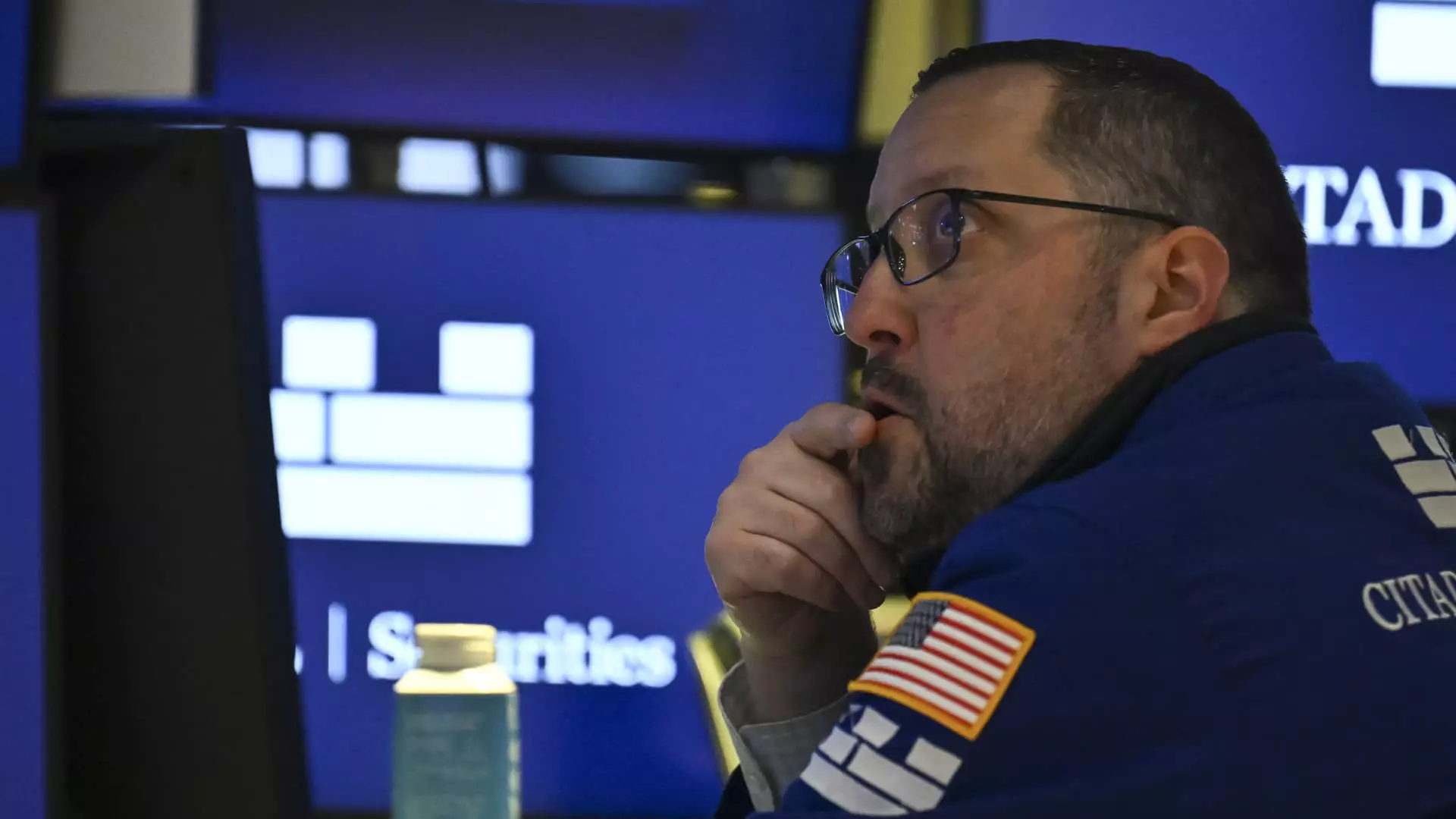The recent February retail sales report paints a picture of resilient consumer behavior amidst a backdrop of economic uncertainty. Yet, it’s essential to remain skeptical. While investor Brian Vendig of MJP Wealth Advisors is optimistic about the prospects for Delta Air Lines, it’s crucial to question whether the resurgence in retail sales is more of a fleeting moment than a stable trend. Consumer confidence often sways with external factors like inflation, geopolitical tensions, and supply chain issues. Therefore, the apparent uptick in consumer spending might not herald a robust recovery but rather suggests consumers are buying necessities, perhaps at the expense of future spending when the reality of the economy hits harder.
Delta Air Lines: Riding the Volatility Wave
Ultimately, Delta Air Lines is facing significant turbulence in a volatile market. With shares down 23% year-to-date, the airline is emblematic of the cyclical struggles in the travel sector. Vendig posits that the airline’s attractive valuation and promising revenue forecasts for 2025 signal a potential rebound. However, one must wonder if optimism is just a band-aid over a gaping wound. The airline industry is notorious for its thin margins and high operational costs, which are susceptible to oil price fluctuations and economic downturns. While a drop in oil prices would indeed bolster Delta’s profit margins, the unpredictability of geopolitical factors means that such a drop is not guaranteed.
The Lululemon Contradiction
In stark contrast to Delta is the performance of Lululemon Athletica, which saw a 5% stock increase recently, despite a year of declining shares. Vendig attributes this to Lululemon’s pivot towards enhancing its online presence, which is a commendable strategy given the current consumer climate. Yet, one must be cautious about framing this as a burgeoning success. Lululemon’s 30% decline over the past year casts a long shadow that belies its current bounce. Can a 5% increase in the face of a monumental drop truly be seen as a reliable indicator of long-term stability? The brand, often associated with premium pricing, may also face pushback as consumers reevaluate their spending habits amid rising living costs.
Accenture: A Cautious Approach
Contrasting sharply with Delta and Lululemon is Vendig’s assessment of Accenture, a titan in professional services. His caution towards Accenture, compounded by a 13% decline in its shares over the past year, is noteworthy in an environment where IT budgets are purportedly expanding. Accenture has been a stock on many investors’ radars, typically buoyed by expectations of increased corporate spending on technology and consulting services. Yet, in the faces of shifting economic policies and lingering macroeconomic unpredictability, the question arises—can Accenture’s business model effectively withstand these pressures? Vendig’s advice to proceed with caution is prudent in this context, as industry trends are fickle and often reactive to external economic headwinds.
The Burden of Economic Policies
Economic policy decisions will undoubtedly reverberate throughout various sectors, demanding that stakeholders remain attuned to forthcoming changes. For example, Delta and Accenture’s fortunes are intertwined with fiscal policy shifts, and the potential tightening of corporate budgets could throttle growth expectations. The reliance on consumer and corporate spending is not only precarious but also underpins the health of these companies in tandem. The looming uncertainty means that investors should contemplate whether these stocks are prudent bets, or if they are merely riding on the fumes of a possibly fleeting consumer confidence.
A Market in Flux: The Bigger Picture
As the markets grapple with these challenges, it raises the more significant question of economic resilience. The current climate is fraught with a duality—optimism exists on the surface layered over the fragility of consumer and corporate psychology. While optimists cling to upturns in retail sales and corporate investment, a center-right viewpoint acknowledges the necessity of prudent caution. Economic fundamentals may dictate that a reckoning is on the horizon, meaning that both seasoned investors and casual observers should prepare accordingly. Balancing hope with skepticism could be the wisest investment strategy in these uncertain times.

